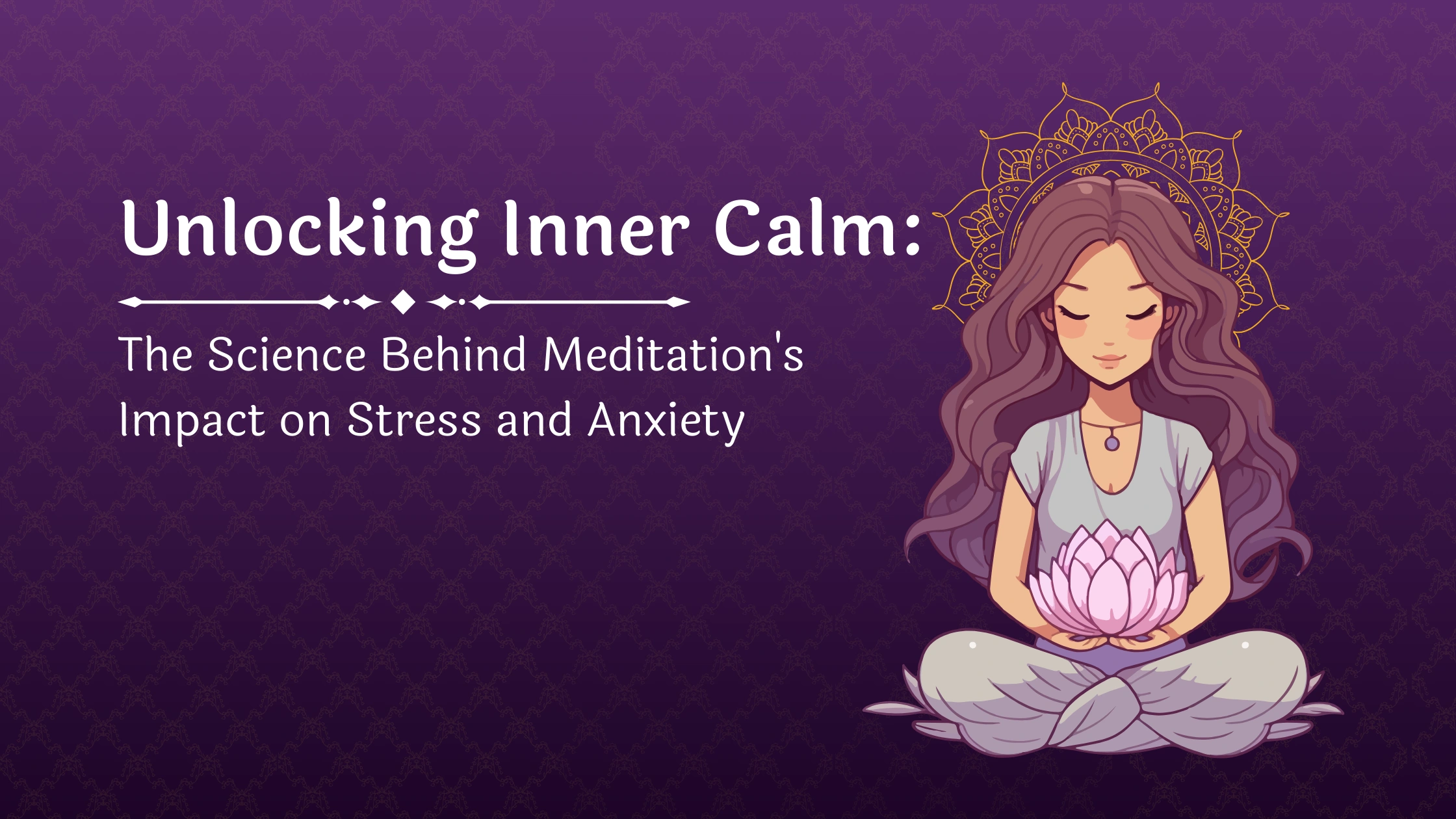Introduction: The Battle With Stress
We live in a world filled with chaos and stress. From work deadlines to personal challenges, stress is often our constant companion. As someone who has practiced meditation for many years, I have seen firsthand how it can transform our experience of stress and anxiety. But beyond personal experiences, what does science say about the impact of meditation on stress?
In this blog, I’ll explore the scientific principles behind meditation, specifically guided meditation, and how it affects stress and anxiety.

What Happens to Our Brain Under Stress?
Stress is more than just a feeling—it is a physiological response that triggers the fight-or-flight reaction. This causes a spike in adrenaline and cortisol (the stress hormone). Over time, chronic stress can affect your mental and physical health, leading to issues like anxiety, depression, and heart disease.
But what if there was a way to reduce these harmful effects?
The Role of Meditation in Stress Management
Meditation offers a natural way to counteract the effects of stress. Here’s how:
- Reduces Cortisol Levels:
Studies have shown that meditation lowers cortisol levels, helping reduce stress. By focusing on the breath or calming imagery, meditation activates the parasympathetic nervous system, which induces relaxation and reduces anxiety.
- Enhances the Brain’s Resilience to Stress:
Meditation helps build resilience by strengthening areas of the brain responsible for regulating emotions. Research has shown that regular meditation increases the size of the prefrontal cortex, the brain’s “executive center,” which is responsible for decision-making, problem-solving, and emotional regulation. -
Alleviates Anxiety:
Anxiety often arises from an overactive mind, filled with worries about the future. Meditation helps focus the mind, bringing it into the present moment. By practicing mindfulness, we can observe our thoughts without judgment, reducing the rumination that fuels anxiety.
The Science Behind Guided Meditation’s Effectiveness
Guided meditation, in particular, provides a structured way to focus the mind. With the help of a guide, individuals can direct their attention to calming thoughts or visualizations, which helps reduce the scattered thoughts that contribute to anxiety.
Studies have shown that guided meditation can enhance brain neuroplasticity, allowing individuals to form healthier thought patterns over time. This increased brain flexibility helps us cope with stress in a more constructive way.

Final Thoughts: A Scientific Approach to Inner Peace
As we’ve seen, meditation is not just a spiritual practice—it’s a scientifically proven tool for reducing stress and anxiety. Whether you are struggling with work-related stress, personal challenges, or general anxiety, guided meditation can help you find the calm and balance you need.
At Atmabhan, we teach guided meditation to help people not only reduce stress but to unlock a deeper sense of inner peace and self-awareness. With consistent practice, you can change your relationship with stress, bringing more calm, focus, and clarity into your life.
Don’t wait for stress to control you—take control today with guided meditation.


